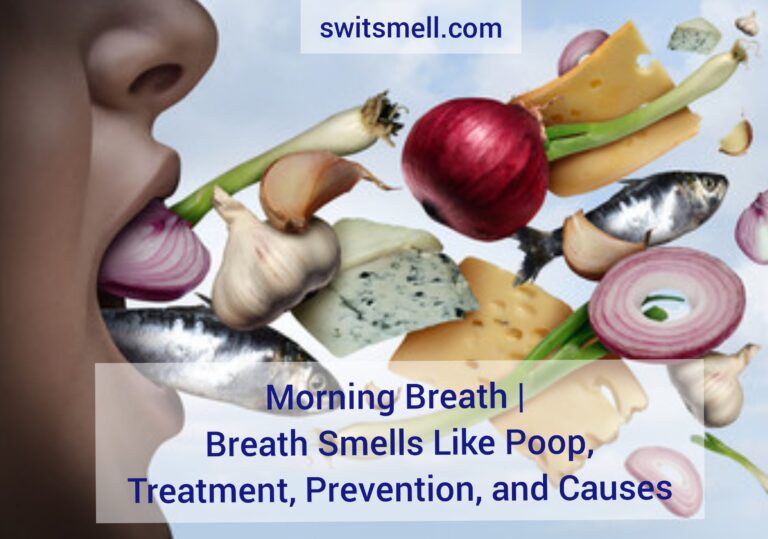Infant Breath Smells: Causes And Remedies

The smell of an infant’s breath can be a topic of concern for many parents. While it’s common for babies to have a unique breath smell, especially after feeding or when they’re teething, a strong or unpleasant odor can be a sign of an underlying issue. In this article, we’ll explore the possible causes of infant breath smells and provide remedies to help alleviate the problem.
Understanding Infant Breath Smells
Before we dive into the causes and remedies, it’s essential to understand that infant breath smells can vary. Some common descriptions of infant breath smells include:
- Sweet or milky smell: This is often caused by the presence of milk or formula in the baby’s mouth.
- Sour or acidic smell: This can be a sign of digestive issues or the presence of bacteria in the mouth.
- Metallic or iron-like smell: This can be caused by the baby’s diet or the presence of certain medications.
Causes of Infant Breath Smells
There are several possible causes of infant breath smells. Some of the most common include:
- Milk or Formula Residue: When milk or formula is left in the baby’s mouth, it can cause a strong smell. This is especially common in babies who are breastfed or formula-fed.
- Teething: Teething can cause a baby’s breath to smell due to the presence of bacteria in the mouth.
- Gastroesophageal Reflux Disease (GERD): GERD is a condition in which stomach acid flows back up into the esophagus, causing a sour or acidic smell.
- Respiratory Infections: Respiratory infections such as bronchiolitis or pneumonia can cause a baby’s breath to smell.
- Oral Thrush: Oral thrush is a fungal infection that can cause a white coating on the tongue and the inside of the mouth, leading to a sour or acidic smell.
- Diet: A baby’s diet can affect the smell of their breath. For example, if a baby is eating solids, they may have a stronger breath smell than a breastfed baby.
- Medications: Certain medications, such as antibiotics or antacids, can cause a baby’s breath to smell.
Remedies for Infant Breath Smells
Fortunately, there are several remedies that can help alleviate infant breath smells. Some of the most effective include:
- Good Oral Hygiene: Regularly cleaning the baby’s mouth and gums can help reduce the presence of bacteria and milk residue.
- Burping: Burping the baby after feedings can help reduce the amount of milk or formula in the mouth.
- Dietary Changes: Changing the baby’s diet or formula can help reduce the smell of their breath.
- Medications: In some cases, medications such as antacids or acid reducers may be prescribed to help alleviate GERD or other digestive issues.
- Home Remedies: There are several home remedies that can help alleviate infant breath smells, including:
- Gently wiping the baby’s mouth and gums with a soft cloth
- Offering the baby a pacifier to help stimulate saliva production and reduce the presence of bacteria
- Using a humidifier to add moisture to the air and help reduce congestion
FAQ Section
What is the most common cause of infant breath smells?
+The most common cause of infant breath smells is milk or formula residue. This can be caused by the presence of milk or formula in the baby's mouth, especially after feedings.
How can I prevent infant breath smells?
+Preventing infant breath smells can be achieved by practicing good oral hygiene, burping the baby after feedings, and making dietary changes if necessary. Regularly cleaning the baby's mouth and gums can help reduce the presence of bacteria and milk residue.
When should I consult a doctor about my baby's breath smell?
+You should consult a doctor if your baby's breath smell is accompanied by other symptoms such as fever, vomiting, or difficulty breathing. Additionally, if you notice a strong or unpleasant odor that persists despite good oral hygiene and dietary changes, you should consult a doctor to rule out any underlying medical conditions.
Conclusion
Infant breath smells can be a concern for many parents, but by understanding the possible causes and remedies, you can help alleviate the problem. Remember to practice good oral hygiene, burp your baby after feedings, and make dietary changes if necessary. If you’re concerned about your baby’s breath smell or if it’s accompanied by other symptoms, consult a doctor to rule out any underlying medical conditions. With the right approach, you can help keep your baby’s breath fresh and healthy.